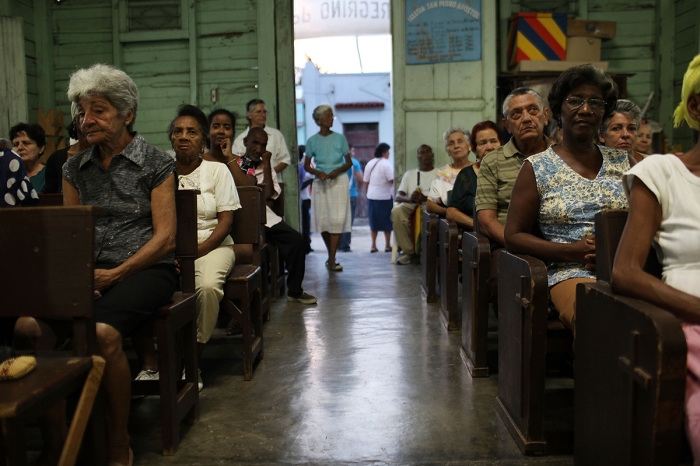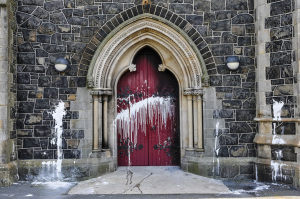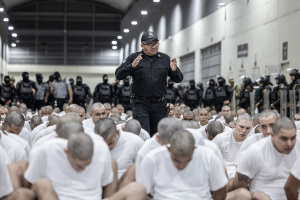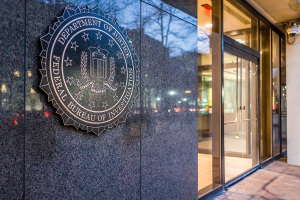Cuban gov't increasing repression ‘in almost every area’: Watchdog report

A watchdog report says the Cuban government has been increasing its repression, targeting religious freedom, dissent and humanitarian work across the country.
Cuba intensified its crackdown on religious freedom and civil liberties, according to a new report from a United Kingdom-based Christian Solidarity Worldwide, which documented 624 separate incidents in which freedom of religion or belief was violated — amounting to 1,898 individual violations.
CSW reported that religious leaders across Cuba — both from registered and unregistered groups — faced heightened levels of harassment, surveillance and punishment last year.
These included intrusive interrogations, threats, pressure to ostracize political prisoners’ families and an uptick in financial penalties for activities deemed “unauthorized,” such as holding services in unapproved locations or leading unregistered gatherings.
Some church leaders were also pressured by the Communist government to expel relatives of detainees from their congregations.
Religious groups of all types — Afro-Cuban communities, Jehovah’s Witnesses, Protestants and Roman Catholics — were affected, says the report. Even groups belonging to the government-recognized Cuban Council of Churches reported violations.
Religious leaders, especially from Afro-Cuban religious communities, reported severe harassment, including violent interruptions of private religious gatherings. Authorities disrupted annual Yoruba festivals in multiple provinces, entering homes mid-ritual, accusing participants of inciting counter-revolutionary activity, and in some cases threatening them with arrest.
In one instance, police raided a private celebration led by Babalawo Reinerio Fuentes in Ciego de Ávila, citing complaints from a neighbor, and forced the group to disperse.
The state appeared particularly intent on targeting those offering material or spiritual aid to families of political prisoners.
Political detainees were subjected to systematic violations of what are commonly known as The Nelson Mandela Rules, which are the United Nations’ minimum standards for the treatment of prisoners, setting basic rights to humane conditions, medical care and dignity.
Security forces used pre-emptive detentions and threats to prevent gatherings, according to the report. At least 75 fines were issued in 2024, with totals exceeding 1.1 million Cuban pesos (roughly $45,100 American), often against religious leaders conducting unauthorized worship or aid distribution.
In one case, police stormed a home in Camagüey where a Yoruba leader was conducting a ceremony and arrested him after he refused to end the service. He was released only after paying a heavy fine.
Meanwhile, children faced physical and verbal abuse in schools due to their religious beliefs, according to the report.
Authorities blocked suspected dissidents from attending religious services, typically by detaining them arbitrarily for short periods. In many parts of the country, religious leaders attempting to distribute humanitarian aid in worsening economic conditions were harassed, fined and had their aid confiscated.
Further, authorities increasingly targeted churches for using Cuban flags or national symbols during worship. In several documented cases, pastors were interrogated, fined and accused of “counter-revolutionary” activities simply for encouraging congregants to pray for the nation while displaying the flag.
Under the Social Communication Law, passed in 2023 to regulate online activity and increase repression of dissent, pastors and leaders who used social media to post about humanitarian needs or prayer services were accused of defamation or promoting ideological division. In one instance, a pastor was told that posting about poverty “discredits the Revolution.”
Despite the risks, many religious leaders continued to speak publicly about human rights abuses, the report notes. They voiced criticism of legislation and state policies, challenging what the government has made clear is a rejection of any form of political or social reform.
Since it came to power in 1959, Cuba’s Communist leadership has often curbed religious freedom and expression, along with other fundamental human rights.
Pastor Alain Toledano Valiente, an exiled leader of the unregistered Apostolic Movement, was recently prohibited from returning to the country to be with his adult daughter, who is undergoing surgery for advanced breast cancer. Toledano Valiente was forced into exile in 2022 and has been under a state-imposed travel ban since.
Earlier this year, Cuba released 553 political prisoners as part of a Vatican-brokered deal with the United States to be removed from a list of countries not cooperating fully in counterterrorism efforts. The island country followed through with the release, even though, under the Trump administration, the decision to delist them was reversed.





























